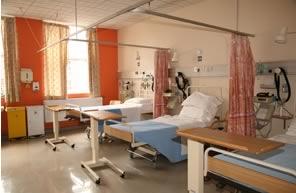Rude Health II: Pay for health, not sickness

Why does the Irish health system incentivise sickness rather than well-being? In ancient China, people used to pay doctors for their health, not their sickness, or so the yarn goes. Does it make sense to reward doctors for the treatment of the sick? Should keeping people well not be the main incentive in any health system? By Sara Burke.
This is the foundation of public health: healthy citizens make up better societies and there are individual, collective and societal measures that can make people live longer, better, healthier lives.
The pioneering political leaders in the late 1800s and mid-1900s who promoted public health measures wanted healthy soldiers and workers (mainly men, of course) to defend or develop their countries and economies. Their drive for clean water, good sanitation, safe workplaces increased both quality of life and life expectancy.
More recently, public health interventions in low- and middle-income countries focus on maternal education as one of the factors that most definitively improve the health of the whole population. Educate the mothers, they can work, earn more, look after their children, have a
better quality of life and place an importance on their children's education, and of course their better health.
It makes common sense for a society and a country to ensure people are healthy, not ill. So why are governments more concerned with illness services rather than championing public health policies that enable most citizens to lead longer, healthier lives?
Speaking at the launch of a recently published, independent tome on the Irish health system, Professor Charles Normand of Trinity College Dublin said: "There are no incentives for disease prevention in the Irish health system." The group, of which he was a member, was looking at the best way to share out the €15 billion of public money that is spent on the health services. The way our current system operates is wrong, they conclude: the incentives now in place are there for sickness, not prevention or health or wellness.
Doctors, hospitals, pharmaceutical companies and all others involved in Irish healthcare get paid for the treatment of sick people (and the sicker we are, the more they get paid), with little attention paid to keeping people well and healthy.
Of course medical treatments are important, particularly if they save or prolong your life, or cure you. Between 1870 and 1970 in Europe, between 5% and 20% of increased life expectancy is attributed to medical treatment. The vast majority of saved lives was a result of improved living conditions, better housing, clean water, etc. In more recent decades in Ireland, medical care is associated with about half the increases in life expectancy. The other half is down to our income, education, lifestyle, levels of inequality, life opportunities.
So why, then, is the Department of Health not bothered with public health? Medical treatments and getting better are more tangible than being healthy and staying well. Public health measures that are collective and involve social change take time to take effect, far longer than the lifetime of any government. Public health actions are hard to measure if they are effective. The power of the medical profession and the profits made by many associated with sickness must have something to do with it.
It is time to rethink our approach to health: to have a Department of Health that drives health not sickness services, to pay for good health not bad, to incentivise wellbeing not illness.
